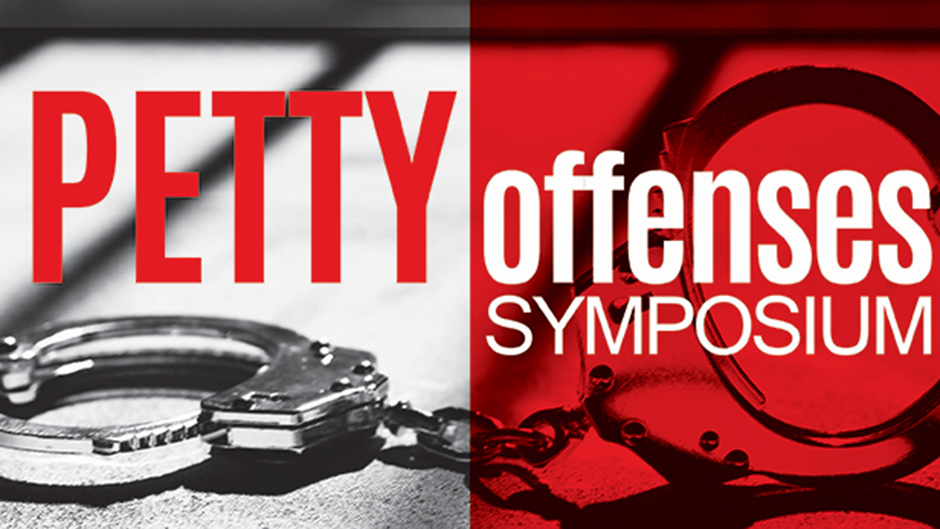Two years ago, the University of Miami School of Law's Human Rights Clinic, in collaboration with the University of Miami School of Communication, University of Miami Race and Social Justice Law Review, University of Miami Law Review, National Homelessness Law Center, and the Open Society Foundations’ Human Rights Initiative, hosted the “Petty Offenses Symposium: Challenging Criminalization of Poverty, Marginalization, and Gender Non-Conformity.”
The symposium focused on petty offenses, such as loitering laws, used to exert social control and explored the use of litigation, human rights advocacy, and creative campaigning to challenge the criminalization of poverty and marginalization. It brought together leading advocates and scholars from the United States, Uganda, Sierra Leone, Nigeria, Malawi, Madagascar, Kenya, Jamaica, Israel, India, Hungary, Guyana, Guinea, and Ghana.
Two years later, a wealth of scholarship deepens reflections on symposium themes. This includes:
- A special symposium issue of University of Miami Law Review. Please see articles and responses by Anneke Meerkotter, Kate Mogulescu, Stephen J. Schnably, Kirsten Anderson, Adrian Jjuuko & Justine Balya, Tracy Robinson, Roman Rodriguez-Tejera, and Poonam Daryani & Alice M. Miller & Ann Sarnak, which address colonial-era vagrancy laws in Africa and the Caribbean policing social hierarchies and sexuality, laws criminalizing life-sustaining activities and homelessness in the U.S., lessons from litigation, and the disparate impacts of loitering laws on people of color, women, and transgender and gender-nonconforming individuals.
- Challenging Domestic Injustice through International Human Rights Advocacy: Addressing Homelessness in the United States by Eric Tars, Tamar Ezer, Melanie Ng, David Stuzin & Conor Arevalo (published with the Cardozo Law Review).
- The Price of Justice: Fines, Fees and the Criminalization of Poverty in the United States
by Lisa Foster (published with the University of Miami Race and Social Justice Law Review). - Challenging Racial Injustice in the Criminalization of Homelessness in the United States: A Human Rights Approach by David Berris, Joseph Candelaria, Tamar Ezer, Lily Fontenot & Jessica Santos (published with the University of Miami Law Review Caveat).
- The Promotion of the General Welfare: Using the Spending Clause to End the Criminalization of Homelessness in America by David Stuzin (published with the University of Miami Law Review).
Additionally, a synopsis report on the symposium is now available in English, French, and Portuguese, as well as a video on “Why It’s Time to Repeal Petty Offense Laws” based on interviews from various symposium speakers.
“The symposium provided a valuable opportunity to bring together local, national, and global conversations on criminal law, poverty, and marginalization,” said Professor Tamar Ezer, the faculty director of Miami Law’s Human Rights Program and associate director of the Human Rights Clinic. “It further enabled strategizing and learning across movements and geographies, strengthening advocacy.”
Advocates at the symposium can further celebrate a victory in the African Court on Human and Peoples’ Rights. In December 2020, the African Court held that vagrancy laws, such as those criminalizing loitering, “idleness,” and being a “vagrant” without a fixed abode or employment, “rogue and vagabond,” without “visible means of subsistence,” or “unable to give a good account” of oneself, are incompatible with human rights standards in both their formulation and application. The decision requires states to amend or repeal all vagrancy laws, bylaws, and regulations to conform with human rights standards.
The symposium sparked creative advocacy, complementing legal strategies. The Miami Law Human Rights Clinic, DePaul University College of Computing and Digital Media, National Homelessness Law Center, Fines and Fees Justice Center, and Nerd Lab have developed the Poor Not Guilty Challenges, three virtual, interactive simulations that demonstrate how fines and fees in the U.S. judicial system perpetuate the punishment of poverty. These simulations seek to generate empathy through role-plays that highlight how fines and fees for petty offenses create impossible binds for people experiencing homelessness and poverty.
Looking forward, the Miami Law Human Rights Program is grateful for support from the Open Society Foundations’ Human Rights Initiative to continue this work, as well strengthen collaborations with advocates in the Caribbean working to challenge the criminalization of poverty and marginalization.
“We are energized by the amazing advocates and scholars who came from around the world to participate in the symposium and the potential for synergies, contributing to more just and effective legal systems globally,” said Ezer.
Read more about the Human Rights Program at Miami Law

